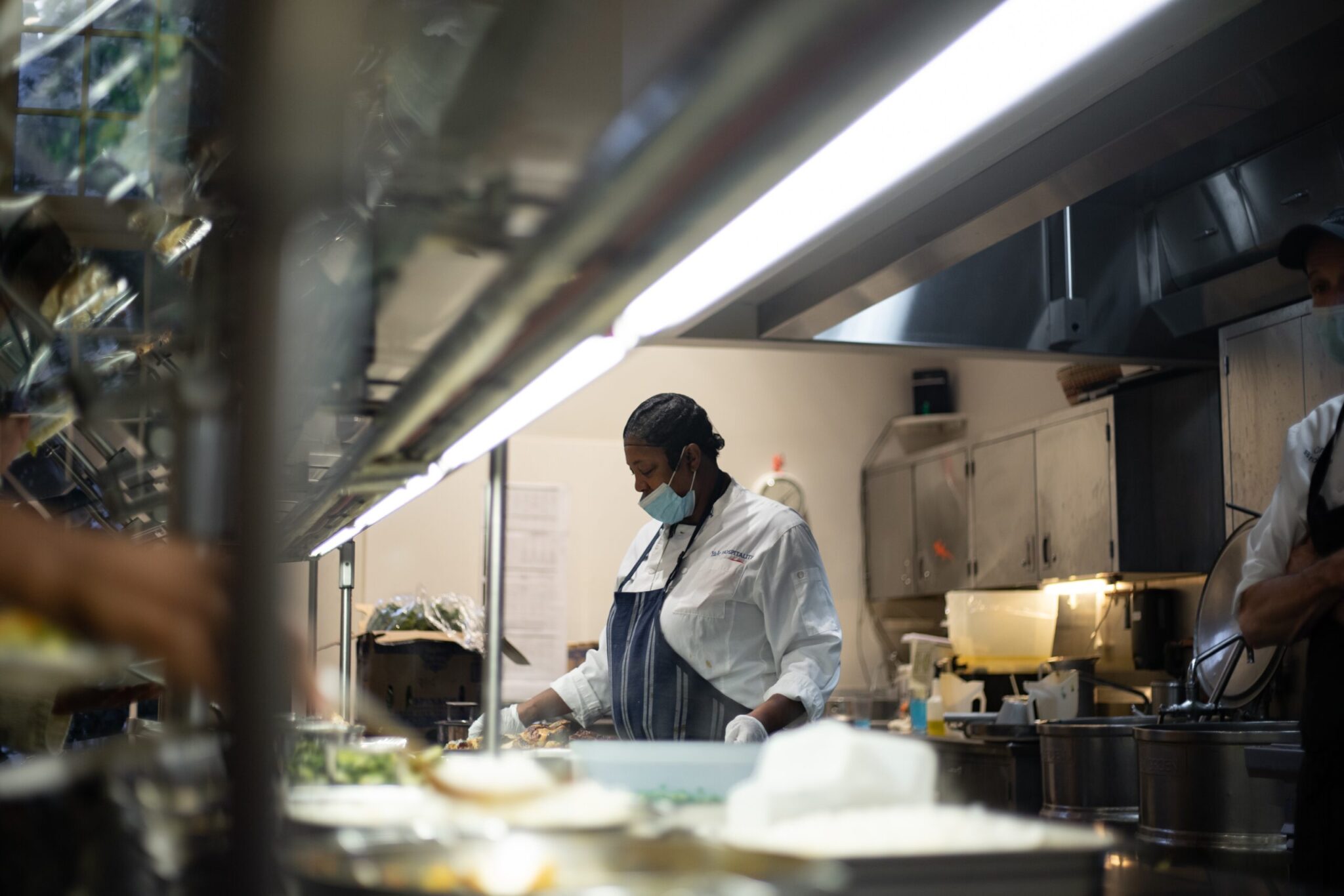Students react to change in spring break meal plans
After initially requiring a fee for spring break meals, Yale Hospitality will now provide meals for students on campus over break at four residential college dining halls.

Tenzin Jordan, Photography Editor
Director of Yale Hospitality Bob Sullivan sent an email on Feb. 16 informing students that meals over spring break would cost $37.08 per day, totaling $556.20 for the entire spring break.
However, on Feb. 24, Sullivan sent an email update informing students that the meals would in fact come at no cost. He then informed students in a Wednesday email that the Branford, Saybrook, Grace Hopper and Jonathan Edwards College dining halls would remain open for students over spring recess, which lasts from March 10 to March 27.
This change came after students, including members of the Yale College Council, expressed concern over the price of meals over break.
“Thanks to collaboration among Yale College Dean’s Office, Athletics and our Hospitality team, the Spring Break Meal Plan will be available at no additional cost to all undergraduate meal plan holders remaining in New Haven,” Sullivan stated in his message to students.
Ten of the 14 residential college dining halls will close after dinner on March 10 and re-open with brunch on March 26, according to Sullivan’s Wednesday email.
Prior to the COVID-19 pandemic, Dean of Yale College Pericles Lewis said students were required to pay a fee for meals over spring break.
“We had initially discussed moving back to the previous system of having people pay for their own meals, but we decided that all things considered, it just made sense to include the meals,” Lewis told the News.
Lewis added that the University will essentially be subsidizing spring break dining, as the meal plan does not cover the cost of meals over spring break. In general, Lewis explained, the meal plan does not fully cover the cost of the food and operations of the dining halls.
The initial email requiring fees for spring break dining sparked student backlash, particularly surrounding the impact that the policy would have had on first-generation, low-income students.
Linh Pham ’24, an ambassador for the FGLI community initiative, said that while the initial email about the costs of meals over spring break was “shocking,” she appreciated how quickly the administration changed their minds.
“The issue of meal plans during breaks is uniquely an FGLI issue as many FGLI students need to rely on the university for any and all living expenses,” Pham told the News. “Despite the quick turnaround, I hope that there is a more systematic approach implemented for meals during breaks not only for FGLI, but for all students on campus who need aid such as international students.”
Alex Sundberg ’24, who serves the director for dining and hospitality of the Yale College Council, wrote to the News that the YCC was “outraged” at the initial message.
Sundberg explained that the YCC immediately wrote a policy proposal outlining the “disgust” they had with the fees and calling on the administration to remove the extra costs.
In this proposal, YCC leaders detailed how peer institutions — including the University of Pennsylvania, Harvard University, the Massachusetts Institute of Technology and Brown University — all refrain from charging extra fees for meals during spring break.
“Most students who are on campus during Spring Break are not on campus because they want to be: they may not have the financial means to travel, find it hard to return home (particularly for international students), or be mandated by their athletic team’s requirements to be on campus,” YCC leaders wrote in the proposal. “These students should not be forced to pay out of pocket for food when the very reason they may be on campus is to save money or because they are required to.”
The YCC proposal also raised concerns about whether students on financial aid would be able to obtain support for the fees originally required for meals over break, writing that many students may have been unaware of the policy or the fact that they needed to specially apply to get financial support over break.
Margaret Hedeman ’23, who previously served as a sports editor for the News, wrote that she was “encouraged” by the quick switch to remove fees. However, she said was not as shocked at the initial fee because she remembered pre-COVID spring breaks when the break meal plan incurred an additional fee.
However, Hedeman said she is curious why the price has gone up in past years and raised concern about how rising prices will affect students with financial needs.
According to Yale Hospitality emails from prior years, the meal plan cost $27 per day for spring break in 2020 and $20 per day in 2019.
The University has 14 residential college dining halls.







